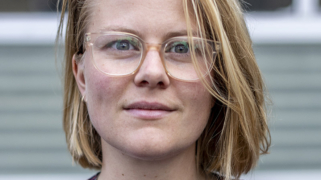Is Napels de hoofdstad van sociale innovatie?
(Scroll down for English version)
Terwijl Berlusconi noodgedwongen zijn vertrek aankondigt en het land aan de financiële afgrond staat, verblijf ik in Napels om sociaal ondernemers te ondersteunen bij het ontwikkelen van nieuwe strategieën om maatschappelijke problemen op te lossen. Op verzoek van Euclid en de UniCredit Foundation organiseer ik een tweedaagse workshop om sociale innovatie te stimuleren. De urgentie om nieuwe verdienmodellen te creëren die onafhankelijk zijn van overheidssubsidies is hier groter dan ooit. De maatschappelijke uitdagingen ook. Daarom is de eerste Social Innovation Competition dan ook in Napels georganiseerd.
Ondanks een destructieve overheid en het gebrek aan geld is de vitaliteit onder de betrokken sociaal ondernemers overweldigend. De bereidheid om te leren en om nieuwe inzichten op te doen is enorm. Het lijkt erop dat men zich hier meer dan elders beseft dat als je dingen voor elkaar wilt krijgen, je dit alleen kan realiseren als je zelf stappen zet en het heft in eigen handen neemt. Nu is het niet zo dat ik voorstander ben van een zich terugtrekkende overheid, maar de aanwezige energie en de bereidheid om nieuwe wegen in te slaan en om samen te werken met anderen, is indrukwekkend.
Samenlevingen worden voor een groot deel door het aanwezige kapitaal in en vooral tussen mensen opgebouwd, onafhankelijk van wat zich in de politiek afspeelt. Zeker in een land als Italië, waar men zich nauwelijks bezighoudt met politiek (waarschijnlijk is dit een van de verklaringen waarom Berlusconi zo lang zijn gang kon gaan). Het wel een wee vindt vooral plaats in de lokale context, op het niveau van de familie, de straat, de stad en de regio. Hier ontwikkelen zich nieuwe interacties, nieuwe vormen van samenwerking en nieuwe initiatieven die er ondanks het falende beleid voor zorgen dat heel veel dingen toch gewoon door gaan en goed gaan. Napels oogt in elk geval als een bruisende broedplaats van nieuwe ontwikkelingen, ondanks het faillissement van de stad en het afval dat op sommige plekken kniehoog ligt.
Zou het geen goede strategie voor Italië en voor samenlevingen in het algemeen zijn om deze enorme rijkdom aan sociaal kapitaal te mobiliseren en te benutten in plaats van het juist tegen te werken en te beknotten? Sociaal kapitaal mobiliseren of sociale innovatie stimuleren doe je niet alleen door geld beschikbaar te stellen. Wat vooral nodig is, is een infrastructuur die stimuleert dat mensen elkaar ontmoeten, dat verschillende invalshoeken en expertises elkaar kunnen vinden en dat relevante kennis en expertise beschikbaar komt. Veel initiatieven die innovatie proberen te stimuleren – zoals bijvoorbeeld het door Kennisland opgezette programma Digitale Pioniers – onderstrepen het belang van de combinatie van geld én het bieden van support.
De Social Innovation Competition is ook op die manier opgezet. Kansrijke initiatieven krijgen een financiële impuls maar bovendien ondersteuning in de vorm van workshops, coaching en expertise. Het creëren van een lerende community waarbij de initiatieven van en met elkaar kunnen leren is hierbij cruciaal.
Aangezien de Napolitanen volgens mij van nature geen enkele moeite hebben om elkaar op te zoeken en netwerken te vormen, zou de stad dus wel eens een koploper kunnen worden op het gebied van sociale innovatie. Een gedachte die hoopvol stemt.
Lees ook deze blogpost van Filippo Addarii, Executive Director of Euclid Network, "Is There Passion in Social Business?".
Naples, the capital of Social Innovation?
While Berlusconi is forced to announce his resignation and the country is on the brink of financial bankruptcy, I am in Naples to help social entrepreneurs to develop new strategies to solve social problems. Together with Filippo Addarii, Director of Euclid and the UniCredit Foundation we organized a two day workshop for social innovation. The urgency to create new business models that are independent of government subsidies is greater than ever. The social challenges are as well. For this reason, the first Social Innovation Competition was organized in Naples.
But despite the lack of money, a destructive government, the vitality of the social entrepreneurs is overwhelming. The willingness to get new insights and to learn is enormous. It seems that people here more clearly than elsewhere realize than that if you want to get things done you can achieve this only if you take steps and put matters into your own hands. Now it's not that I support a retreating government, but the available energy and willingness to embark on new paths, to collaborate with others, to learn, is impressive.
Regardless of what is happening in politics, societies are largely built on the existing social capital within society- the social fabric that ties people together.. This is true everywhere but even more in a country like Italy, where there is little identification with national politics (this is probably one of the reasons why Berlusconi could go ahead for so long). That what makes society tick takes place in the local context, on the level of the family, the street, the city and in the region. Here people are developing new solutions, new initiatives, new forms of cooperation ensuring that despite the failure of the government a lot things still happen and even go well. Naples seems to me, despite being bankrupt and although the garbage is in some places knee high, a breeding ground for exciting new developments.
A powerful strategy for Italy, but also for societies in general, is to mobilize the enormous wealth of social capital rather than to curtail and to hinder this source of innovation. Mobilizing social innovation does not only depend on financial resources. What is needed is a support system that encourages people to take action, that encourages different perspectives and expertises to come together and to provide relevant knowledge and expertise. Many initiatives that attempt to stimulate social innovation, such as the Digital Pioneers Programme (www.digitalepioniers.nl) which was established by Knowledgeland (www.knowledgeland.org) underline the importance of offering the combination of money and support.
The Social Innovation Competition is also established according to these principles. The selected initiatives receive a financial boost but also support in the form of workshops, coaching, expertise etc. Creating a learning community in which initiatives can learn from each other is crucial. Since the Neapolitans are naturally inclined to build networks and work in close communties they may well be a leader in the area of social innovation. A thought that is at least hopeful.
Chris Sigaloff
Chair Knowledgeland




